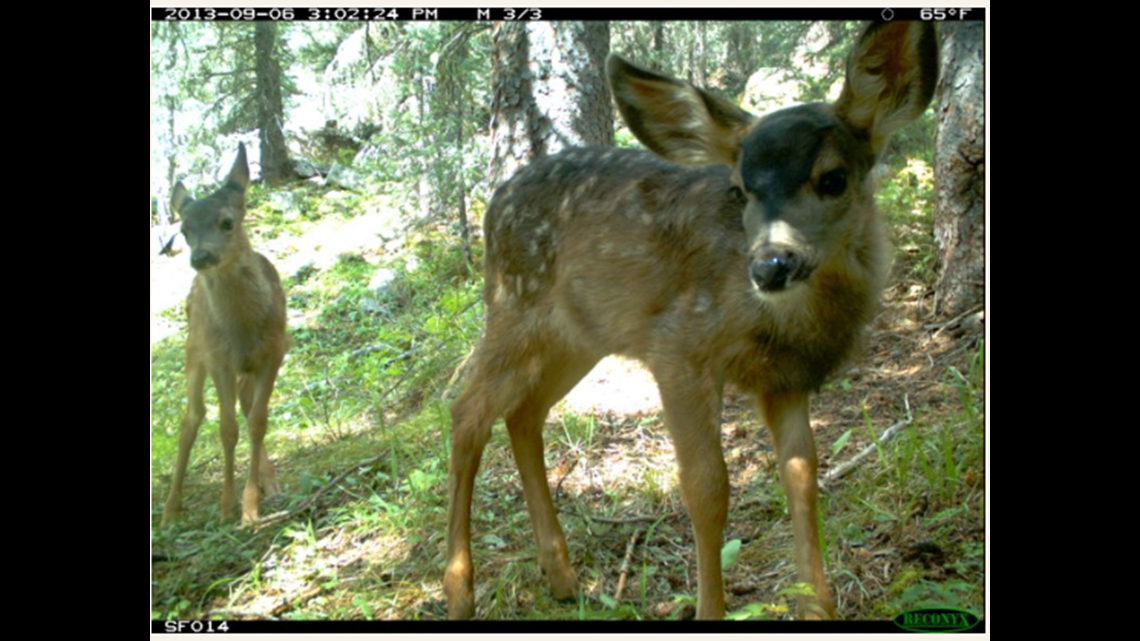COLORADO, USA — Populations of deer, elk and moose don't mind dead trees killed by the bark beetle.
That's according to new data from Colorado Parks & Wildlife. CPW wanted to find out if the state's forests, which are being damaged by bark beetles, have also changed the population of the animals who live there.
"The worse the habitat had been affected by the beetle the more downed timber, the more the elk seem to like it," said CPW Public Information Officer Travis Duncan.
Bark beetle in Colorado is decimating forests because the winters aren't cold enough to kill them off before spring, according to the latest federal climate change report.
“There have been lots of studies done about the effects of bark beetles on the trees in Colorado, but not necessarily on how it was affecting wildlife across the state," Duncan said.
CPW set up 300 cameras across the state from 2013 to 2014. They used peanut butter to lure the animals close to the cameras.
They captured 300,000 photos.
"This is a cute one," said Duncan, pointing out of photo of a deer and a fawn.


CPW cites an "opening of the forest canopy" to let plants that they forage on grow as a potential reason.
There was just one animal they couldn't caption on film.
"One of the I would suppose you would call them the losers of this different habitat was the red squirrel," Duncan said. "We found that their population went down as a result of the beetle infestation and I think that's because of a loss of the cone crop."
Lynx also live in these forests, and Duncan said when their primary snack of the snowshoe hare isn't available, red squirrels are a good meal.
"I think the study gave us a little more information, but it also raised other questions," he said.
The lead researcher is already working on a new study to find out if the Lynx population could suffer.
SUGGESTED VIDEOS | Local stories from 9NEWS

